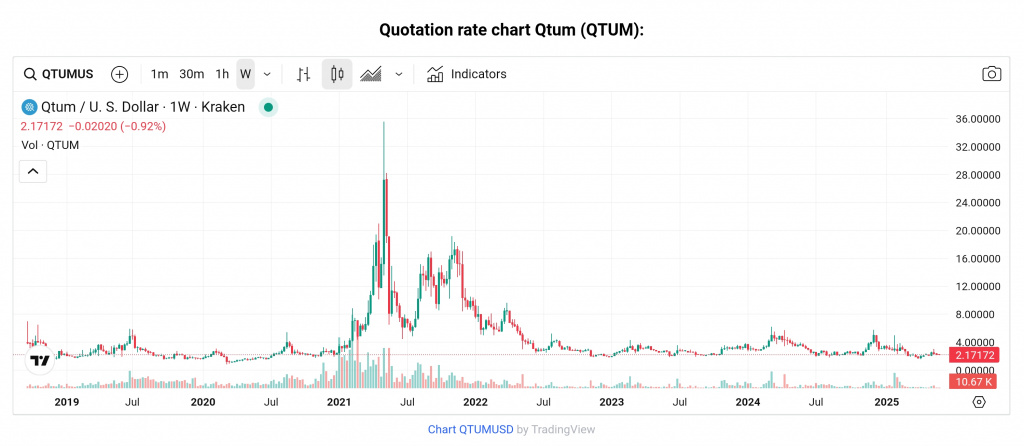Qtum (pronounced “Quantum”) is a blockchain platform that combines features of both Bitcoin and Ethereum, aiming to provide a robust and scalable environment for building decentralized applications (DApps) and smart contracts.
Qtum seeks to bridge the gap between blockchain and real-world business applications by utilizing a hybrid of Bitcoin’s UTXO model and Ethereum’s smart contract capabilities.
Qtum’s UTXO (Unspent Transaction Output) model is inspired by Bitcoin’s blockchain, which enhances security and stability while allowing for compatibility with existing Bitcoin tools.
Qtum has introduced mobile wallets and a light client to make it more accessible and convenient for users to interact with the platform from their mobile devices.
Key features of Qtum
Qtum incorporates the Ethereum Virtual Machine (EVM), enabling developers to create and execute smart contracts and DApps using widely-known Solidity programming language.
Another key feature of Qtum is the Decentralized Applications (DApps) integration. Developers can create DApps on the Qtum platform to offer various functionalities, from financial services to supply chain management and beyond.
Moreover, Qtum introduces the concept of “master contracts,” which allow for more complex and versatile smart contracts. Master contracts can interact with different smart contracts, simplifying interactions between DApps.
Qtum x86 Virtual Machine is designed to allow developers to build DApps using mainstream programming languages like C++, opening up more possibilities for DApp development.
Qtum Token (QTUM)
QTUM is the native utility token of the Qtum platform. It is used for various purposes, including paying for transaction fees, participating in staking, and supporting network governance.
Qtum uses a Proof of Stake (PoS) consensus mechanism called Proof of Stake Version 3 (PoS 3.0), where validators can stake QTUM tokens to participate in block validation and earn rewards.

Qtum ecosystem and protocols
Qtum aims to introduce decentralized governance by allowing network participants to vote on proposed protocol changes and upgrades.
The platform collaborates with various projects, enterprises, and institutions to build and expand its ecosystem and adoption.
Qtum has also explored solutions for cross-chain compatibility, aiming to allow assets and data to move between different blockchain networks.
While Qtum’s hybrid approach aims to capture the strengths of both Bitcoin and Ethereum, it provides a blockchain platform that is suitable for both business applications and decentralized development.






